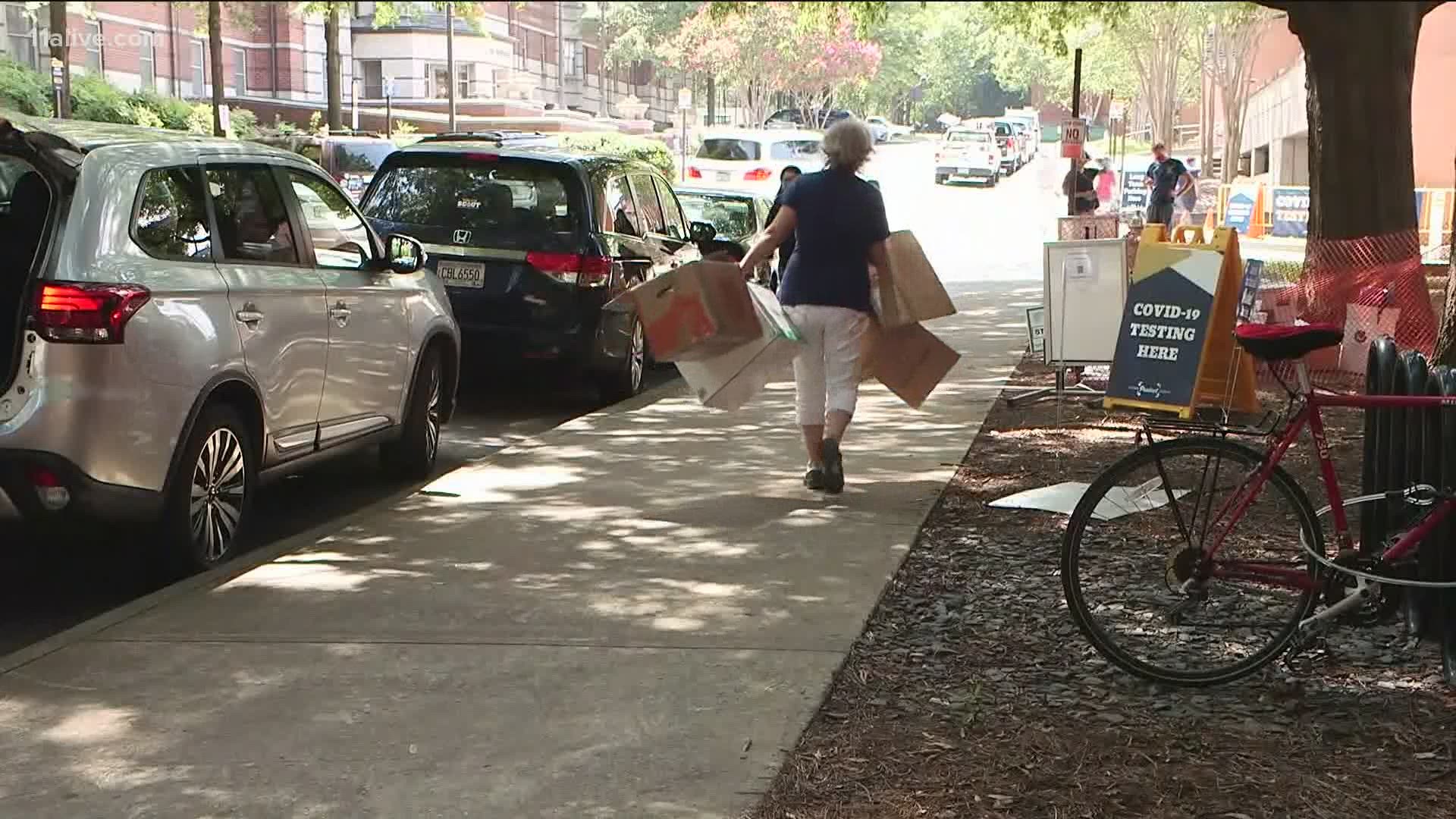ATLANTA — As students at colleges across the state leave campus for the long holiday weekend, many of them wonder what school will look like when they return. Several campuses have rising COVID-19 numbers, and students say they've been given mixed messages about housing.
Some students at Georgia Tech said they have no idea what will happen next.
In the span of a week, students living with roommates were told they would have to move out and get a refund, then there would be no refund but they still had to move, then, they didn't have to move at all.
Students said they don't know what to expect when they return after Labor Day.
"I'd say a stronger emotion than confusing. It's really frustrating to say the least," said Georgia Tech first year Lance Lampert.
He thought he was going to have to move home this week. He said the messaging from the college administration has been inconsistent and incomplete.
"It's disappointing and a real cause for concern," he said.
He lives in a single dorm on campus though and ultimately didn't have to leave. In the last email sent by Georgia Tech, administrators told parents students would be voluntarily assigned to single rooms if they currently had a roommate.
The email sent to parents, reads: "We announced a plan Tuesday, Sept. 1, to move student residents to single rooms. Subsequently, we received a great deal of feedback from students and parents. We understand these concerns and want our actions to be responsive to them. Consequently, we will not require any student to move if they want to stay where they are.
Why are we trying to de-densify residence halls? The surveillance testing data we have collected over the past three weeks indicates there is a high risk of spread between roommates. When sharing a bedroom, we have found that one positive case can quickly and easily become two positive cases. We know that 40 percent of all known cases in residence halls are linked to double occupancy.
At the same time, we agree with the many messages we have received from students and parents that a of the first-year college experience is living in a residence hall with a roommate and forming friendships with other students. Many of our students already have formed close connections with their roommate, their hallmates, or their Living Learning Community. And in an environment where there are limited options for socializing safely, the bond between roommates can be even more important.
Therefore, we are encouraging but not requiring students to move to a single room. Also, we will allow students currently sharing a room who choose to move to single room the opportunity to choose a new living space among our available inventory.
Under the initial plan, we offered residents a penalty-free cancellation window if they chose to move out rather than move to a single room. Since the decision for residents to move is now optional, we are no longer offering a penalty-free cancellation window."
A student who works with housing told 11Alive anonymously the process has been a nightmare.
"I thought GT housing was just hanging by a thread. It was just complete chaos. Just trying to make sure that all these students need to be where they need to be," she said.
She said the lack of a clear plan about student housing during the pandemic has been frustrating.
"It's really terrible to be so embarrassed of your university, that your last semester is just sour. It just leaves a bad taste in your mouth, like, the world tastes like cigarettes and it's very bleak," she said.
4th year student Kelly O'Neal said she thinks they're doing the best they can under difficult circumstances.
"A lot of the admin can't answer our questions. Or if they can, it's here's your answer but... this could change in the next twenty minutes or two days or two weeks. So really nothing is ever completely finalized," she said.
Georgia Tech has had 801 positive cases of COVID on campus since March, with 39 new cases reported yesterday alone.
"I would be surprised if we are still on campus in a week or two," he said.
Georgia Tech had announced it would do voluntary surveillance testing for COVID-19 - and a spokesperson for the college says they are testing close to 2,000 people a day.
"The surveillance testing program has provided us with invaluable data and has helped us identify clusters and isolate cases more effectively. We were concerned about the rising number of infections toward the end of last week, but surveillance data allowed us to more accurately target at-risk populations, such as Greek housing and some areas within our residence halls. So far, we also have not seen an increase in the rate of positive tests among faculty and staff since the start of the semester despite a higher number of employees now on campus," said the GT Spokesman.

